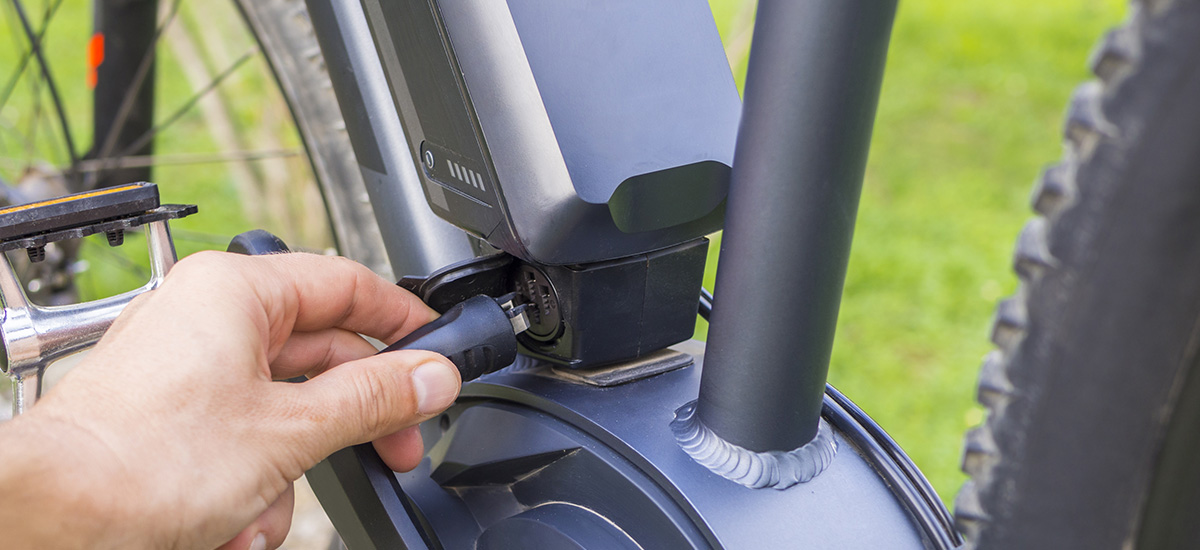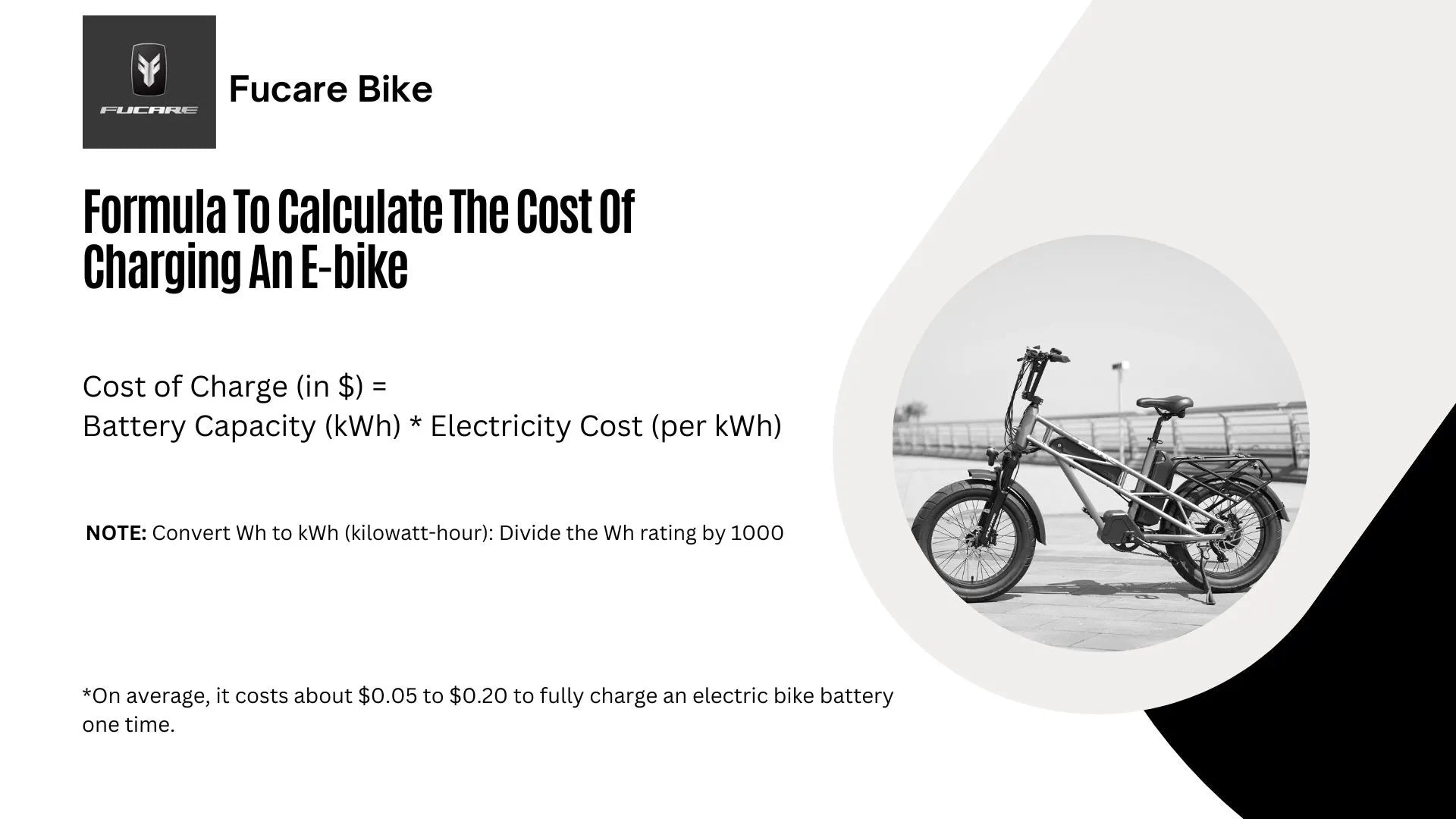Charging an electric bicycle is affordable. The exact cost varies based on several factors.
Electric bicycles are becoming more popular due to their efficiency and eco-friendliness. As more people switch to e-bikes, understanding how much does it cost to charge an electric bicycle is crucial. The price of charging your electric bicycle depends on the battery size, electricity rates, and how often you ride.
This introduction will help you grasp the basics of these costs. By the end, you’ll know what to expect when plugging in your electric bicycle. Let’s explore the details and see how much it will cost to keep your ride powered up.

Credit: electricbikereport.com
Table of Contents
Electric Bicycle Charging
Electric bicycles are becoming more popular. Charging them is simple and cost-effective. Many people wonder about the cost of charging these bikes. This section will help you understand electric bicycle charging.
Benefits Of Electric Bicycles
Electric bicycles offer many benefits. They are eco-friendly. They produce no emissions. They save money on fuel. They are easy to use. They can help you avoid traffic. They also promote a healthy lifestyle.
Rise In Popularity
The popularity of electric bicycles is growing. More people are choosing them for daily commutes. They are also used for leisure rides. Their ease of use attracts many users. Many cities support electric bicycle use. This trend is likely to continue.
Factors Influencing Charging Costs
Understanding the factors influencing charging costs can help you manage your electric bicycle’s expenses. By knowing what impacts these costs, you can make informed decisions to save money.
Battery Capacity
The battery capacity is a major factor in charging costs. It is measured in watt-hours (Wh). A higher capacity means more energy storage, which translates to longer rides. But, it also means higher charging costs. Here’s a simple table to understand this better:
| Battery Capacity (Wh) | Charging Cost ($) |
|---|---|
| 250 Wh | 0.10 |
| 500 Wh | 0.20 |
| 750 Wh | 0.30 |
As shown, a 250 Wh battery costs around $0.10 to charge. A 500 Wh battery costs about $0.20. A 750 Wh battery costs roughly $0.30. These numbers can vary based on electricity rates.
Electricity Rates
Local electricity rates significantly impact charging costs. Rates differ from place to place. They are measured in cents per kilowatt-hour (kWh). To calculate the cost, multiply the battery capacity by the electricity rate. Here’s a quick example:
- Battery Capacity: 500 Wh (0.5 kWh)
- Electricity Rate: $0.12 per kWh
Calculation: 0.5 kWh $0.12 = $0.06. Thus, charging a 500 Wh battery costs $0.06 at this rate.
To further break it down, consider these steps:
- Determine the battery capacity in kWh.
- Find your local electricity rate.
- Multiply the two numbers.
By understanding these factors, you can better manage your e-bike’s charging costs.
Types Of Electric Bicycle Batteries
Understanding the different types of electric bicycle batteries is crucial. The type of battery affects the cost of charging your e-bike. Let’s explore the most common battery types: Lithium-Ion Batteries and Lead-Acid Batteries.
Lithium-ion Batteries
Lithium-Ion Batteries are the most popular choice for electric bicycles. They are known for their lightweight and high energy density. These batteries charge quickly and last longer compared to other types. Here are some key points:
- Lightweight and portable
- Higher energy density
- Faster charging times
- Longer lifespan
The cost to charge a Lithium-Ion battery depends on its capacity. On average, it can cost between $0.05 to $0.10 per charge. This makes them a cost-effective choice in the long run.
Lead-acid Batteries
Lead-Acid Batteries are older but still used in many e-bikes. They are cheaper upfront but have some drawbacks:
- Heavier and bulkier
- Lower energy density
- Slower charging times
- Shorter lifespan
Charging a Lead-Acid battery is usually more expensive due to its lower efficiency. The average cost ranges from $0.10 to $0.20 per charge. Over time, these costs add up, making them less economical.

Credit: fucarebike.com
Calculating Charging Costs
Want to know how much it costs to charge an electric bicycle? It’s simple. This section will guide you through the process. First, we will look at the formula for calculating the costs. Then, we will see an example calculation.
Formula For Calculation
To calculate the charging cost, you need to know three things:
- The battery capacity of your electric bicycle (in kilowatt-hours, kWh)
- The electricity rate charged by your provider (in dollars per kilowatt-hour, $/kWh)
- The efficiency of your charger (usually around 90%)
The basic formula is:
Charging Cost = (Battery Capacity / Charger Efficiency) Electricity Rate
Let’s break this down:
- Battery Capacity: Measured in kWh. It represents the amount of energy your battery can hold.
- Charger Efficiency: Usually a percentage, like 90%. It accounts for energy lost during charging.
- Electricity Rate: The cost per kWh charged by your electricity provider.
Example Calculation
Let’s assume you have an electric bicycle with a 0.5 kWh battery. Your electricity provider charges $0.13 per kWh. Your charger has an efficiency of 90%.
Using the formula:
Charging Cost = (0.5 kWh / 0.90) $0.13/kWh
First, divide the battery capacity by the charger efficiency:
0.5 kWh / 0.90 = 0.555 kWh
Then, multiply by the electricity rate:
0.555 kWh $0.13/kWh = $0.072
So, it costs approximately $0.07 to fully charge your electric bicycle battery.
Charging an electric bicycle is very affordable. It makes electric bicycles a cost-effective transportation option.
Cost Comparison: Home Vs Public Charging
Understanding the cost to charge your electric bicycle can help you save money. It’s important to know the differences between home charging and public charging stations. This section will compare the two options.
Home Charging
Charging your electric bicycle at home is usually the most affordable option. You will only pay for the electricity you use. The cost per kilowatt-hour (kWh) varies by location. On average, it is about $0.13 per kWh in the United States.
Here is a simple table to show the cost of charging a typical 500Wh (0.5 kWh) e-bike battery at home:
| Battery Size | Cost per kWh | Total Cost |
|---|---|---|
| 0.5 kWh | $0.13 | $0.065 |
Charging at home is convenient. You can charge your bike overnight and have it ready the next day. It also saves you trips to public charging stations.
Public Charging Stations
Public charging stations are more expensive than home charging. They often charge higher rates for electricity. Some stations also charge a flat fee for each use.
Here is a breakdown of potential costs at public charging stations:
- Electricity cost: $0.20 – $0.30 per kWh
- Flat fee: $1.00 – $2.00 per session
Using the same 500Wh battery example, the cost at a public station might look like this:
| Battery Size | Electricity Cost per kWh | Flat Fee | Total Cost |
|---|---|---|---|
| 0.5 kWh | $0.25 | $1.50 | $1.625 |
Public charging stations are useful for long trips. They provide a quick and accessible way to recharge. But, they come at a higher price.
Tips For Reducing Charging Costs
Electric bicycles offer a cost-effective and eco-friendly mode of transportation. Yet, the cost to charge an electric bicycle can add up over time. Employing effective strategies can help reduce these costs. Below are some tips for reducing charging costs.
Optimal Charging Practices
Adopting optimal charging practices can extend battery life and save money. Follow these simple steps:
- Avoid overcharging: Disconnect the charger once the battery is full.
- Charge at optimal times: Charge during off-peak hours when electricity rates are lower.
- Maintain battery health: Store the battery in a cool, dry place and avoid extreme temperatures.
- Partial charging: Try not to let the battery drop below 20% before charging.
Using Renewable Energy
Using renewable energy sources is a great way to reduce charging costs and environmental impact. Consider these options:
- Solar Panels: Install solar panels to generate your own electricity. This reduces reliance on the grid.
- Wind Turbines: If you live in a windy area, small wind turbines can be an effective solution.
- Community Renewable Programs: Join local renewable energy programs to access green power at reduced rates.
By implementing these practices, you can save money and contribute to a greener planet.
Impact Of Charging Frequency On Costs
The cost to charge an electric bicycle largely depends on how often you charge it. Charging frequency has a significant impact on the overall cost. Let’s explore this in more detail.
Daily Commuting
If you use your electric bicycle for daily commuting, you will need to charge it more often. Frequent charging means higher electricity consumption. For instance, if your bike’s battery capacity is 500Wh, and your electricity rate is $0.13 per kWh, it costs about $0.065 per charge. Charging daily would then cost roughly $1.95 per month. Over a year, this adds up to about $23.40.
Bear in mind, these are estimates. Actual costs can vary based on battery size and local electricity rates. Frequent charging can also impact battery lifespan, leading to replacement costs. Regular maintenance and careful usage can help manage these costs effectively.
Occasional Use
If you use your electric bike occasionally, the charging costs will be lower. For example, charging once a week would cost around $0.26 per month, or about $3.12 per year. This is significantly less compared to daily use.
Occasional users might not see a large impact on their electricity bill. Less frequent charging also helps in maintaining the battery’s health. This can extend the battery’s lifespan and reduce replacement costs.

Credit: www.addmotor.com
Frequently Asked Questions
How Much Does It Cost To Charge An Electric Bicycle?
Charging an electric bike costs around $0. 10 to $0. 20 per charge. The exact cost depends on your electricity rate and battery capacity.
Is Charging An Electric Bike Expensive?
No, charging an electric bike is not expensive. It generally costs less than $0. 20 per charge, making it very affordable.
How Long To Fully Charge An Electric Bike?
It typically takes 3 to 6 hours to fully charge an electric bike. Charging time depends on the battery size and charger type.
Can I Charge My Electric Bike At Home?
Yes, you can charge your electric bike at home using a standard electrical outlet. Ensure your charger is compatible with your home voltage.
Conclusion
Charging an electric bicycle is affordable and eco-friendly. Costs vary by location and battery size. On average, it is cheaper than fueling a car. Electric bicycles offer a cost-effective and green transportation choice. Save money and help the environment. Enjoy the ride without breaking the bank.

